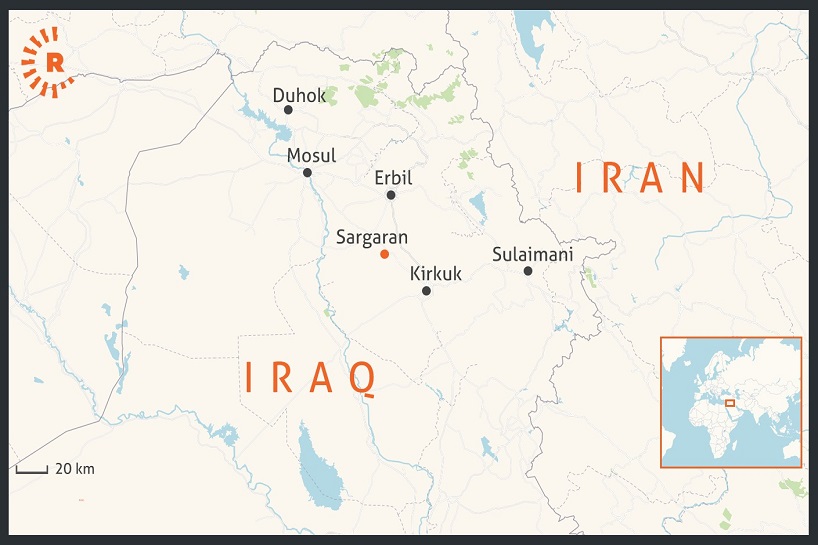ERBIL, Kurdistan Region – Kurdish farmers continue to have their land confiscated in Kirkuk for Arabs resettled during the Baath era, according to local villagers.
“I feel like this tractor is running over my body,” said Kurdish farmer Dashti Agha as he watched his land being plowed in the village of Palkana, which is south of Kirkuk in the town of Sargaran.
Last week, Kirkuk court took 50 dunams of farmland from Agha and gave it to an Arab who returned to the region last year after lodging a complaint to claim ownership of the land.
Agha says he showed documents, including land deeds, to Iraqi forces to prove the land is his but was unsuccessful in retaining his property.
There are 38 villages in Sargaran town. 12 of these villages are subject to land disputes, according to the local council.
Arabs from elsewhere in Iraq were brought into the disputed areas of Kirkuk largely between 1970 and 1978. The Arabization of the province has been a historical flashpoint between Baghdad and the Kurds.
After 2003 and the fall of the Baath regime, Iraq began a policy of de-Arabization within the framework of Article 140 of the constitution, which aims to reverse the demographic changes begun by Saddam Hussein during the Al-Anfal campaign.
Lands that had been confiscated from Kurds and Turkmen were returned, while the Arabs who had been resettled were given financial compensation.
However, they have now come back with the support of the Kirkuk governor Rakan al-Jabouri, who issued 14 decrees seizing land owned by Kurds and giving it to Arabs before Iraq’s Federal Court rescinded his decrees in December.
Kurdish locals in the area have alleged that a “re-Arabization” of the region is underway since federal forces took control of disputed territories on October 16, 2017.
“I did my best to stop them. But they [the Arabs] called the [Iraqi] Army. Shortly afterwards, two groups from the intelligence service of the Iraqi army arrived on the scene. We spoke on the matter. I insisted that they had no rights to use my land,” Agha told Rudaw.
“This issue is not just on the farmlands, but the households as well. It will go beyond Palkana village to others in the region,” said Mohammed Amin, another farmer.
Qadir Abbas, head of the Sargaran town’s Local Council, says the best solution is for Agha to launch a legal appeal.
“The Kurdish farmer can appeal in court, as Arabs have done,” Abbas said. “By doing so, the court will look into both appeals and will make a final decision. Whoever is rightful, the court will decide in his favor.”
Abbas added that the Kurdish farmer has the official deeds to the land, unlike the agricultural contracts issued to Arabs under the ex-Baath regime in order to enact demographic change in the area.
Abbas urged the Iraqi parliament, Prime minister and Federal Court to find a “swift solution” to the issue.
Villagers lay partial blame on the Kurdish parties, who they say have given no support to affected farmers.
Hatam Taii, a spokesperson for Arabs in Kirkuk, told Rudaw English that they have “official proof” and documents from the 1940s and 1950s that the area belongs to the Shammar, a large Arab tribe.
The lands of the 12 disputed villages were taken away from Kurdish farmers by the Iraqi government in 1975 on grounds that they were prohibited oil zones. Two years later in 1977, under Decree No. 949 issued from the the Baath Supreme Revolutionary Council, they were given to Arabs resettled in the region.
The Iraqi Agriculture Ministry has now formed a committee to resolve the matter at hand after the Kurdistan Regional Government (KRG) called on them to end the land disputes in Sargaran town.
“We are trying to end such disputes in a legal and constitutional way,” Faris Issa, in charge of the KRG representative office in Baghdad, said.
“We have asked Prime Minister Adil Abdul Mahdi to help halt the confiscations. He is not happy with the situation,” he added, describing the KRG as also taking the situation seriously.

